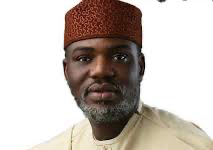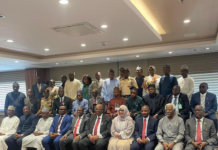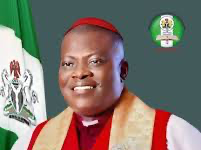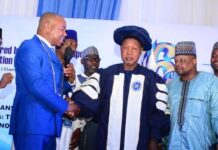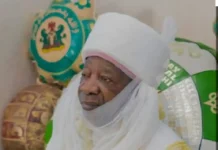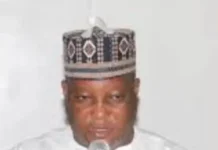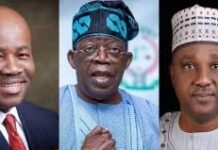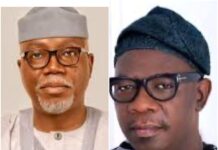TINUBU: Borrow-Build-Tax By Aliyu U. Tilde
POLITICS DIGEST – Tax has been central in any government that wants peace, services and progress. It has been there in African nations long before colonization as testified by the accounts of all explorers like Mungo Park, Clapperton, Barth, and even recent ones like Charles Robinson. Let us not forget that the pocketing by a district head of a substantial part of Mungo Park’s passage tax to his chief was what cost Mr Park his life on the Niger before Borgu. At every district he passed throughout West Africa, he had to pay a charge of some form to the State, which was represented by the chief.
And so it is in all modern nations. The illusion which we created after the oil boom of the 1970s and our romance with socialism that government can offer free services is now over. The reality has hit us: Beyond basic services in health and education, we need to pay in order to build, maintain, upgrade and expand almost all other services to our citizens under efficient collection and utilization regimes. That is what every serious government does. Ours cannot be an exception.
Nowhere is this thesis expressed better than Kaduna-Pambegua road which has begged for attention since it started to deteriorate forty years ago. Today, it is a smooth ride without a single pot hole. (See pictures). Through SUKUK 4, its renovation is complete, except for the collars surfacing of the shoulders at some points and the second asphalt layering which has already started outside Mararrabar Jos. I and all motorists will gladly pay a toll fee whenever we ply the road in order to recoup the cost of its renovation and maintenance.
I wish the borrow-build-tax model can be extended in earnest to address the shameful state of roads particularly in the North-east and North-central—Jos-Saminaka road, Akwanga-Jos-Bauchi-Gombe road, Zaria-Pambegua road, Numan-Jalingo road, to mention but few. The present government has laid the foundation on which the incoming needs only to build.
At the expense of preaching to the Pope, we must say that the need for transparency in procuring the funds and awarding the contract cannot be overemphasized. The cost must be competitive; the contractors must be the best; the collection of toll fee driven by the latest technology; and so on.
Read Also:
Few Nigerians can argue against this as we have seen the evil of rampaging bad roads: They destroy our vehicles, ruin our businesses and kill us daily more than Corona, banditry and Boko Haram combined. If N200 can save me a tyre, shocks, not to mention the whole vehicle or my life, I need to be foolish not to pay it and wait for a free, good road that will take half a century to come.
It is in the same vein that lack of taxation destroyed many sectors. The ongoing banditry, which is a manifestation of collapse of our livestock sub-sector, is largely the result of removal of Jangali—the cattle tax—that was the financial bedrock of northern provinces during the colonial era and after independence, as the Arewa House archives show.
I absolutely agree with Professor Tukur Saad that Jangali would have been used also to provide the necessary veterinary services in our grazing reserves, improve their pastures, provide security to their herders and protect their land against encroachment. Governors, as did Residents in the 1920s and up to 1960s, would be competing in attracting herders to, and keeping them in their States. Ortom would have gladly championed open grazing and protected the Fulani herders if Benue State Government were earning substantial revenues from cattle tax.
Unfortunately, 1979 happened. With the abrogation of Jangali, livestock resources went off the radar of government and the insecurity we are facing today is one of its consequences. The same thing goes for the judiciary, education and health services.
Our indulgence in the other room does not support free social services. From 56 million Nigerians in 1963 to 200 million today, the Nigeria of the next 50 years is likely to be 800million people or more. The graduates of today will be 70 and above then. And we expect universities to give their children and grandchildren free degrees. What an illusion! That degree would be earned in 20 years not four and it would not be worth a primary school certificate.
So let the President-elect move into office with the noble concept of borrow-build-tax, which will address our infrastructure deficit. Let us witness within four years, the sufficient progress on the shameful state of many of our roads to enable his re-election in 2027. Meanwhile, I congratulate us, the pliers of Pambegua-Kaduna road that the wait and suffering of 40 years is now over.
Dr. Aliyu U. Tilde
16 May 2023








